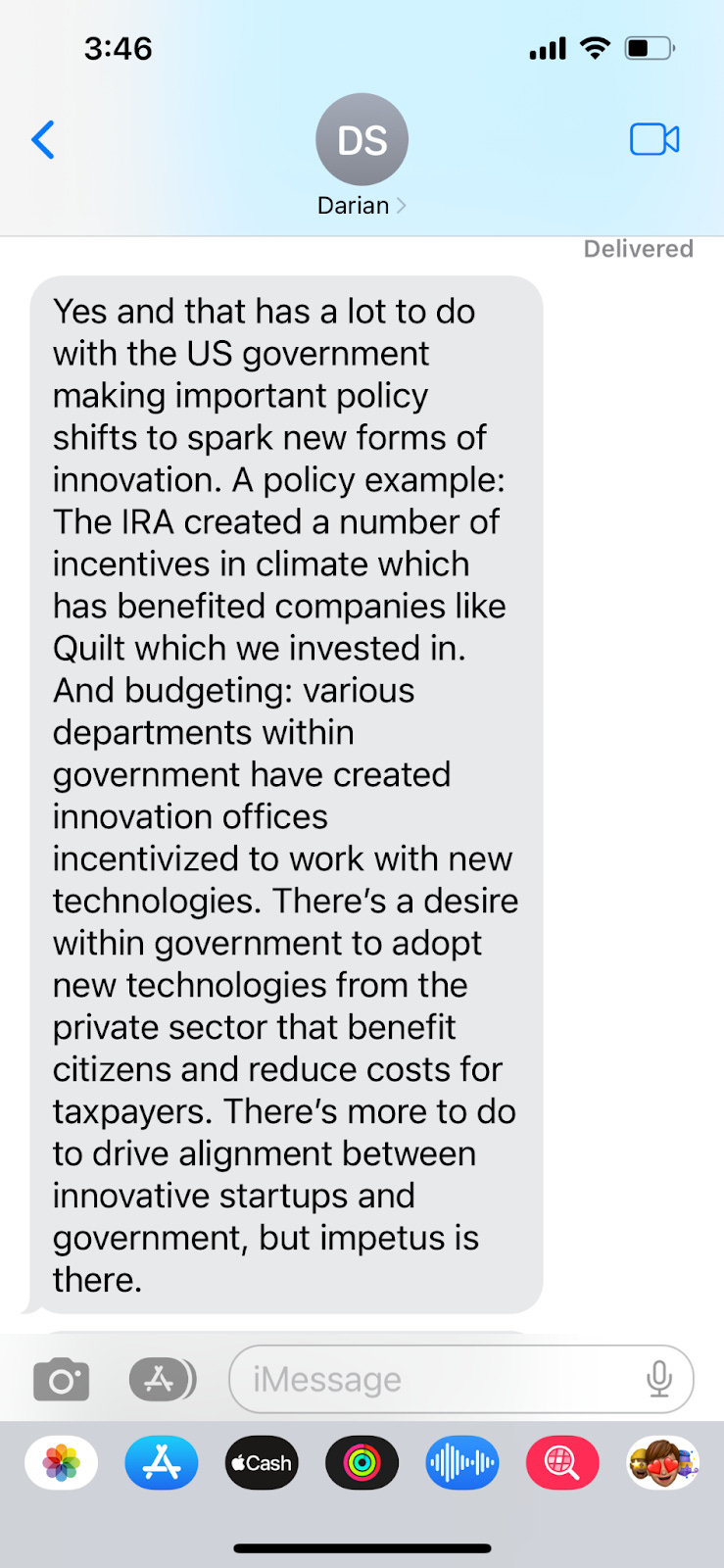‘American Dynamism’: How VCs Learned to Stop Worrying and Love Defense Tech...Hot Startup Funding Rounds...Byju's Leads EdTech Rout
Plus, the defense tech VCs to keep on your radar
Hey, it’s Madeline. Happy Friday! It’s been an exciting week for us at Newcomer after announcing our first Newcomer Banking Summit, happening on March 14 in San Francisco. Seats are limited to 150 attendees, but we’ll prioritize Newcomer subscribers. You can apply to attend here.
To the news…
The Top Story
Silicon Valley Embraces the Pentagon
Defense tech, long a backwater in venture investing, is now in vogue as global political tensions mount and “techno-optimists” tout the need for America to lean into its techno-military superiority. And even VCs who aren’t comfortable funding weapons-makers are seeing adjacent opportunities in communications and infrastructure as the U.S. government steps up a wide range of investments.
This week Andreessen Horowitz, whose general partners David Ulevitch and Katherine Boyle have been leading the charge on defense tech investing for several years now, hosted the American Dynamism Summit in D.C., partly to drum up further interest in collaborations between Silicon Valley and the Department of Defense.
Bessemer Venture Partners published a defense tech market map just this past Sunday. Even OpenAI is getting in on the action, as I wrote about two weeks ago here.
Increasing tensions between the US and China and Russia are a huge motivator for the US government to partner with Silicon Valley companies, especially in the AI race. The US currently leads global AI development due to explosive growth in the private sector, and government officials want to do everything they can to keep it that way while harnessing the technology for military and geo-political ends.
“I think this is the most important technology innovation in the last 20 years for the DoD, and I see no path for the government to access this critical tech without support from the startup community,” said Point72 Ventures’ managing partner Sri Chandrasekar.
On the VC side, the successes of SpaceX, Palantir, and Anduril, which was last valued at $8.5 billion, have made people more comfortable writing checks to companies where the primary revenue stream is government contracts, according to Felicis’ Niki Pezeshki. “Investors become more willing to invest because there's more proof points of examples of winners,” he said.
And as alumni of these earlier success stories go off to start companies of their own, the “mafia” effect is helping them land new deals with VCs. “They know what they need to do to win those customers and create long-lasting revenue streams with the government,” Chandrasekar said.
Andreessen Horowitz’s Ulevitch told Newcomer that the increased attention in the sector has been heartening. “The mission is so important and the consequences too crucial not to be excited for others to follow our lead,” he said.
Still, selling to the government is never easy, especially for a startup. Hardware companies, particularly AI-focused ones, still have lots of front-end costs, and buyers at the Pentagon don’t move as fast as their private counterparts.
Indeed, after writing extensively about EdTech, I’ve heard from many VCs about the slow and rather labyrinthine process of selling to the government. Both industries have a similar problem: the end user of a startup’s tech is usually not the person in charge of procurement.
Deputy Secretary of Defense Kathleen Hicks, in a speech at the a16z event, said her department was taking steps to make things easier, including helping defense tech companies bridge an oft-cited “valley of death”— the multi-year slog it takes for new technology to successfully reach full-scale production after developing the initial prototype.
Hicks also noted that the Defense Innovation Unit, which helps the military make faster use of commercially-derived tech, now reports directly to the Secretary of Defense in order to shave off some inefficiencies. She gave a nod to the relatively new “Office of Strategic Capital” as well, which aims to work more closely with private capital sources.
Bessemer’s Tess Hatch pointed out that one major upside of landing the US government as a customer is how consistent those revenues can be. “Not only is the DoD a huge market, but once you’re in it is incredibly sticky and easy to expand upon,” she said.
For other investors, American Dynamism isn’t just about defense. Gradient Ventures’ Darian Shirazi won’t lead deals in startups with weapons applications or tools that can cause harm, he said, but he’s more than willing to support founders that are working to advance American wellbeing more broadly, such as securing networks and infrastructure.
He cited SpaceX and Starlink as being particularly transformative companies. “I don't see a reason why we would need AT&T, Verizon, or T-Mobile in a future world where you have low orbit satellites.”
I asked Shirazi in a text exchange if he was seeing more top-tier founders show interest in working with the US government. Here was his response:
There’s undeniably a patriotic—and sometimes political—twist to the action though. “To come to a summit on ‘American Dynamism’ is to make a choice,” said Hicks. “You know what the alternative looks like. You know who you want to win.”





